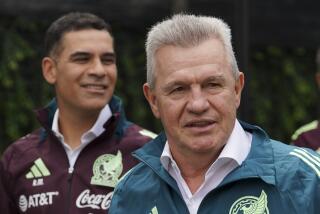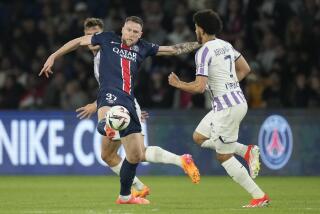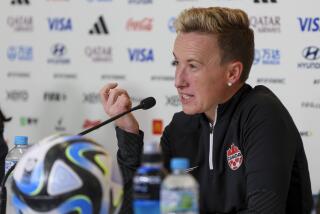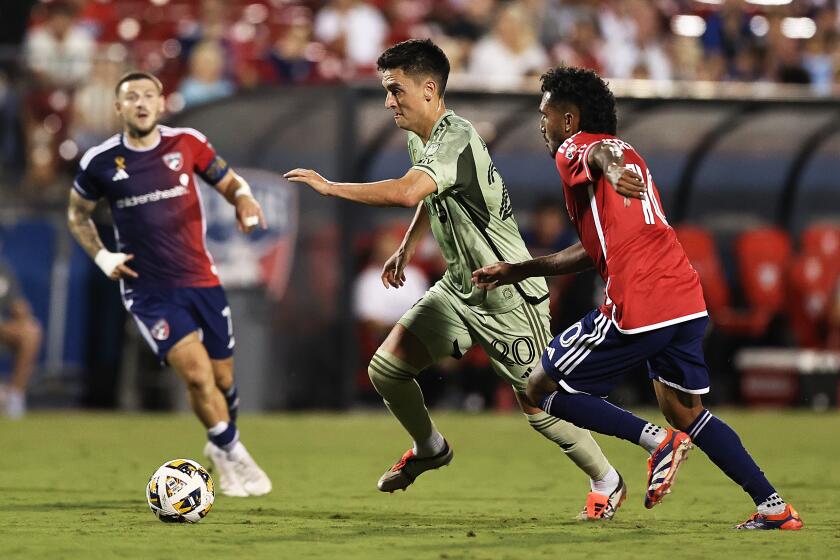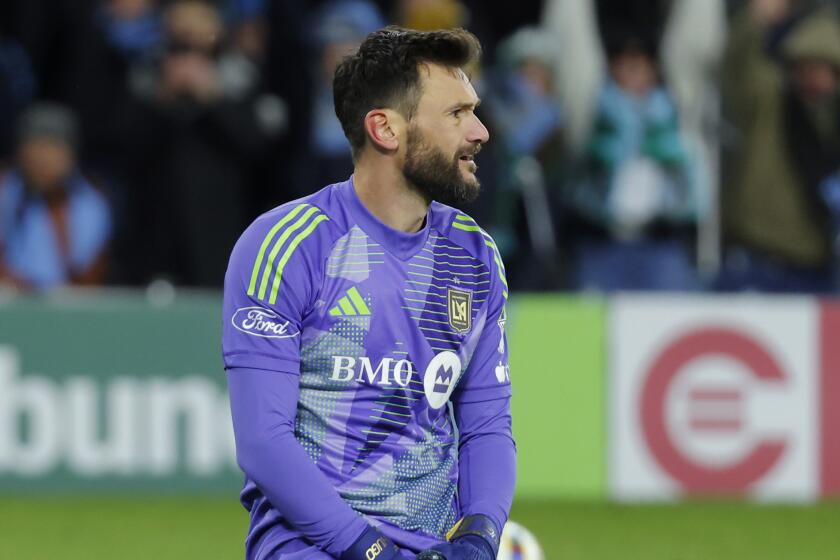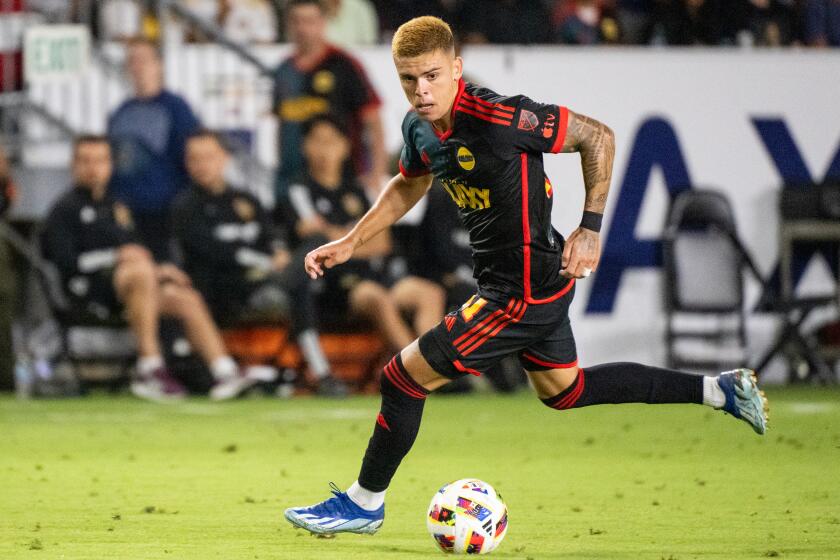Column: Big-game failures don’t add up for Messi, Ronaldo
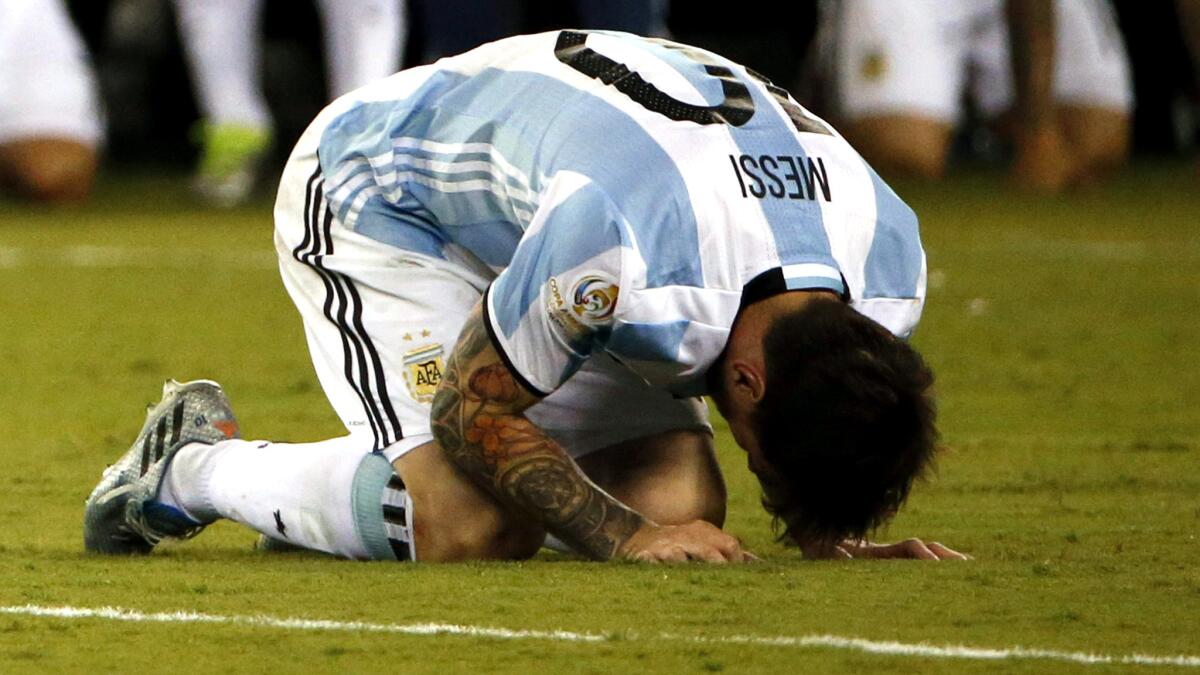
David Sumpter has spent decades studying math and years watching soccer, passions he recently melded in an attempt to explain how and why things happen as they do on the playing field.
And that led him to a rather unscientific conclusion for how and why Lionel Messi and Cristiano Ronaldo, the two greatest players of their generation, have yet to win a major title with their respective national teams.
“That, to me, is just the randomness of football,” Sumpter said in a phone call from vacation in Portugal.
Come again?
Keep in mind Sumpter has a doctorate in mathematics, held research positions at both Cambridge and Oxford, and has devised complex formulas to explain everything from the traffic patterns of Cuban leaf-cutter ants to the rhythm of dancing honeybees in Australia. Yet, when it comes to the lack of international success for both Messi and Ronaldo, the best explanation he can come up with is bad luck.
Still, that’s a better answer than most.
Together Messi and Ronaldo have lifted 45 major trophies with their club teams in the last 11 years. Since 2007 they have combined to finish first or second in voting for the FIFA world player of the year award 16 times and have scored more than 930 goals for club and country.
But while those successes have carried both to dizzying heights, it’s also made their failures in major tournaments – where together they are 0-for-5 – stunning and spectacular. Good luck writing a mathematical formula to explain that.
“In soccer, because it’s such a team sport, it really is impossible for one individual to win one of these trophies by themselves,” said Sumpter, who teaches applied mathematics at Uppsala University in Sweden, where he also runs something called the collective behavior research group.
“There are so many variables,” added Dave Sarachan, the Galaxy’s associate head coach. “Analytics can’t measure everything.”
The latest example of that came last Sunday when Messi’s Argentina lost its third final in as many years, falling to Chile on penalty kicks in the Copa America Centenario. Afterward Messi, who missed his penalty, was distraught, first covering his face, then crying on the field. Hours later, blaming himself for the loss, he rashly announced his retirement from the national team.
It will most likely be a short retirement because, when Messi’s head clears, he’ll look back on a dismal finals record that needs correcting. Aside from the last two Copa Americas, which went to extra time scoreless, he also lost the 2014 World Cup final in extra time and the 2007 Copa America, extending Argentina’s championship drought to 23 years.
Portugal’s dry spell is even longer, going back to the beginning of time since the country’s best finish in an international competition is second place in the 2004 Euros, Ronaldo’s first tournament. Portugal has reached the quarterfinals in four events since then without winning, a slide the team and Ronaldo can end this year after beating Poland on penalty kicks last Thursday to advance to Wednesday’s Euro semifinal with Wales.
See the most-read stories in Sports this hour »
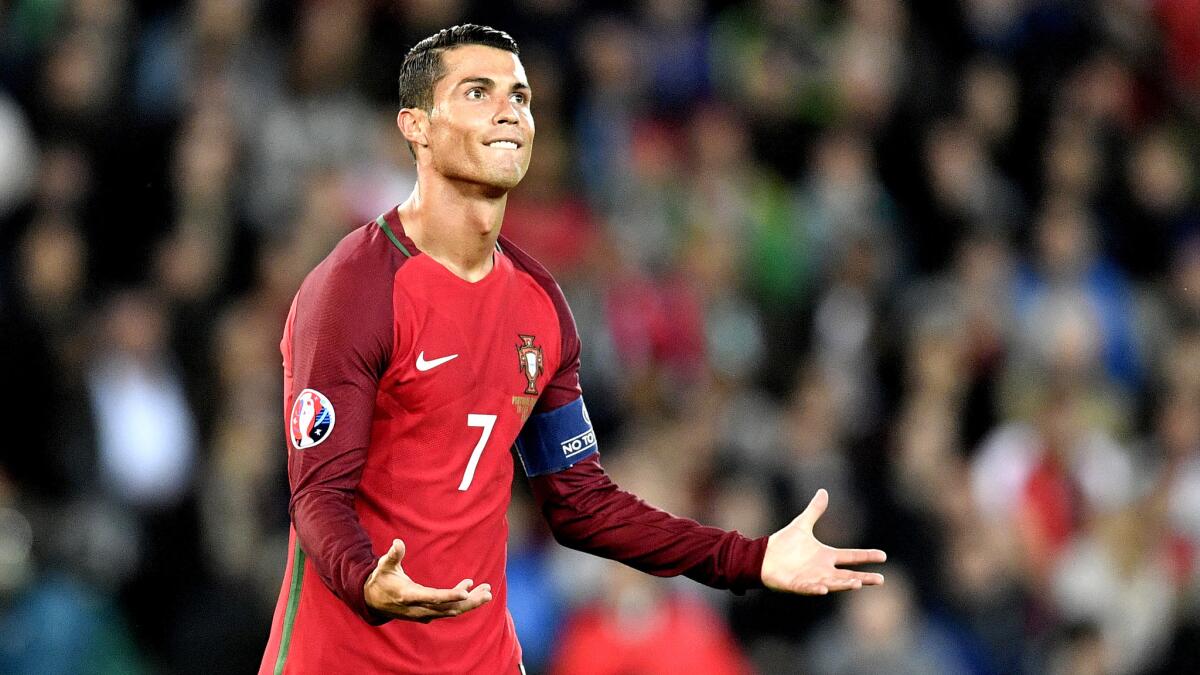
In his recently released book “Soccermatics: Mathematical Adventures in the Beautiful Game,” Sumpter devotes a chapter to what he calls the “statistical brilliance” of Messi and Ronaldo, likening their numerical dominance to Usain Bolt in sprinting and the Williams sisters in tennis.
ESPN agreed. Crunching data from the 324 players who played in a Big Five European league and appeared in at least 20 national team games since 2010, it found that Messi and Ronaldo trailed only Spain’s David Villa and Klaas-Jan Huntelaar of the Netherlands in terms of goals and assists per game.
Yet, neither has scored in five tournament finals, spanning more than 540 minutes of open play. The probably of that, Sumpter said, is less than 5%.
But U.S. sports are full of equally illogical big-game examples.
Hall of Fame quarterback Jim Kelly lost four consecutive Super Bowls. Ted Williams never won a World Series, while Ernie Banks and Ken Griffey Jr. never played in one. Karl Malone, the second-leading scorer in NBA history, won two MVP awards but never a league title, while hockey Hall of Farmer Marcel Dionne never got past the second round of the NHL playoffs.
For others, the biggest moments have become their defining moments. Diego Maradona scored two brilliant goals to will Argentina past England in the 1986 World Cup quarterfinals – two reasons why he is still revered in Argentina while Messi is jeered.
Closer to home, Abby Wambach became the face of the U.S. women’s soccer team by scoring a world-record 184 goals in 14 years, but it was Carli Lloyd who had the go-ahead scores in the last three major championship games the Americans have won.
Does that mean some players are wired to rise to the occasion while others are predisposed to fall? Are some players inherently clutch and others incurable chokers? Or is all this inexplicable, like trying to determine why a flipped coin sometimes comes up heads and sometimes tails?
Sumpter shrugs.
“There actually isn’t any scientific method for telling the difference,” he said. “As a mathematician and a scientist, I don’t want to take away the possibilities … but you always have to account for the fact that some small errors by one player could have just totally changed the result.”
In other words, he said, “It can just come down to bad luck.”
ALSO
Lionel Messi says he’s retiring from international play
Centenario edition is most successful Copa America in history
Messi misses, Chile wins Copa America title in shootout
